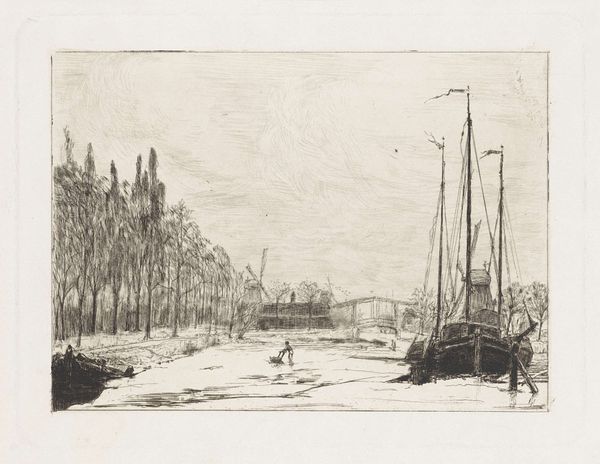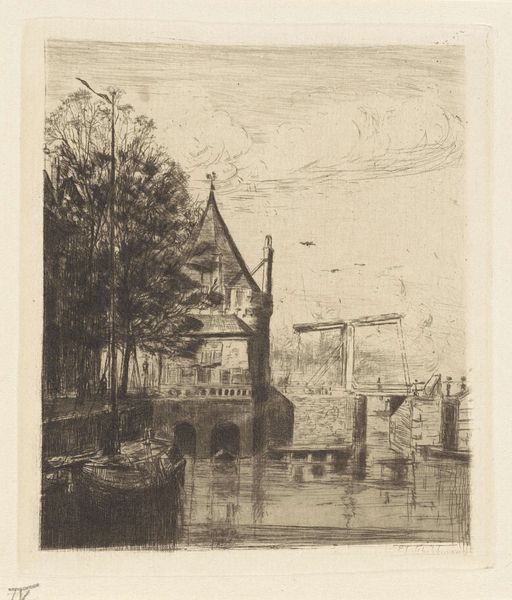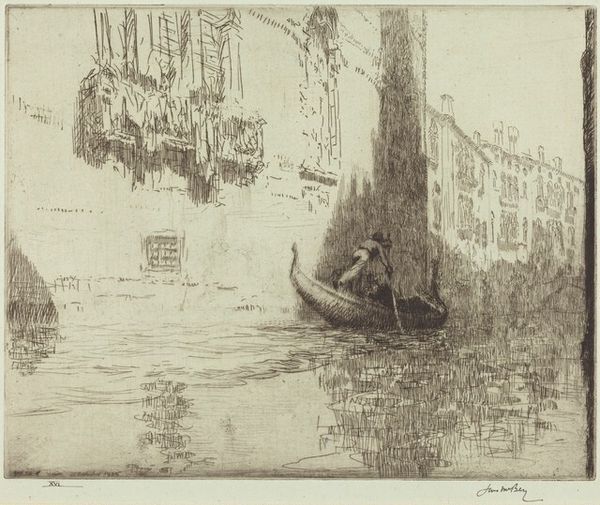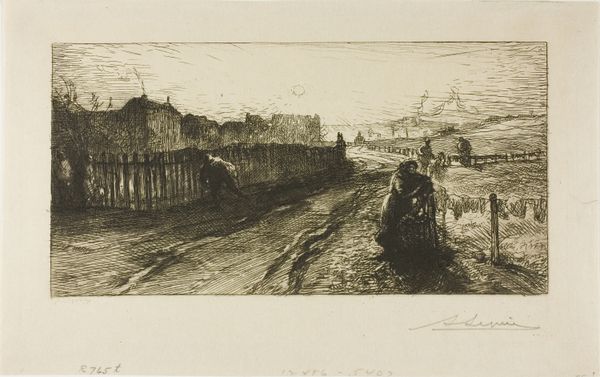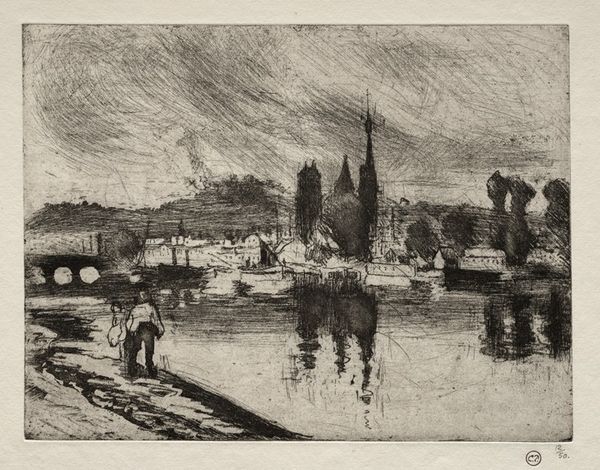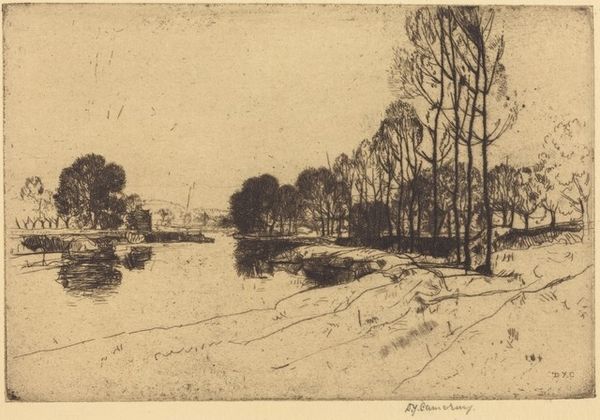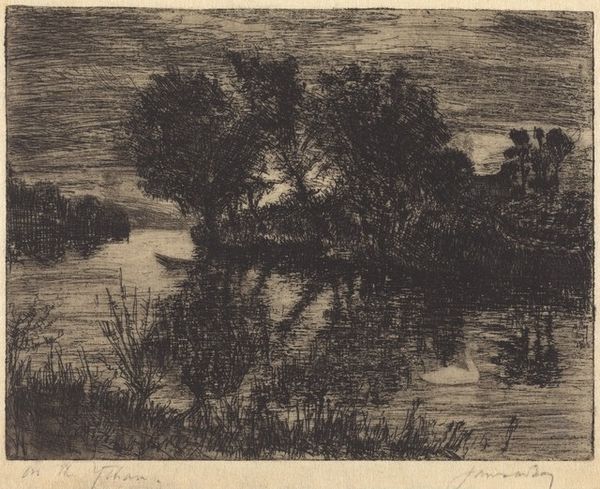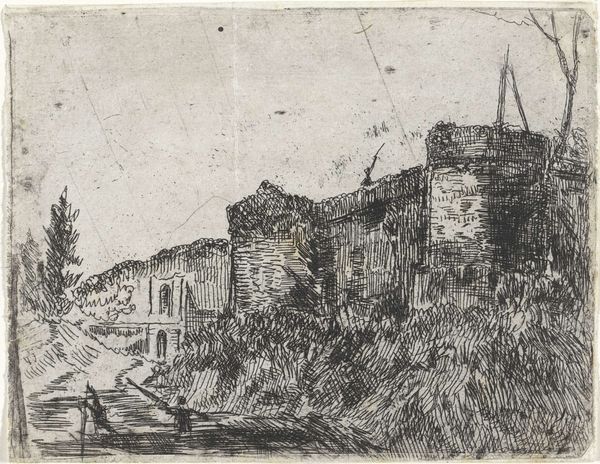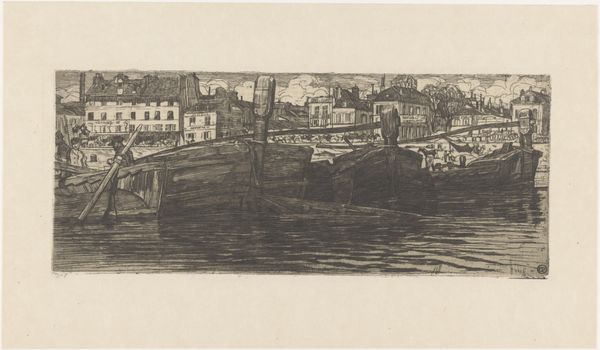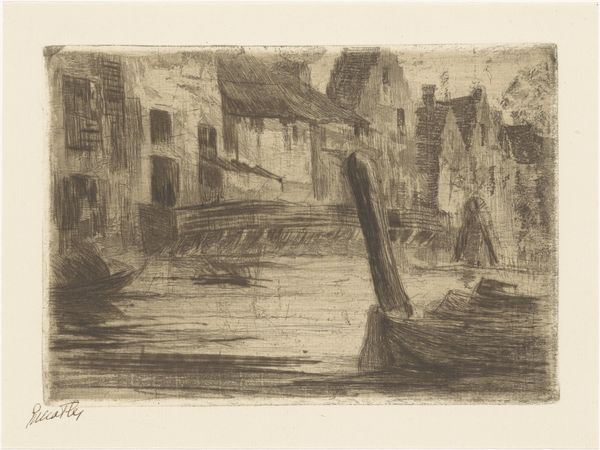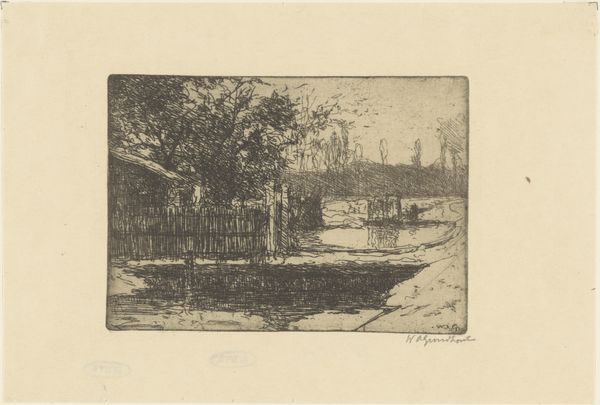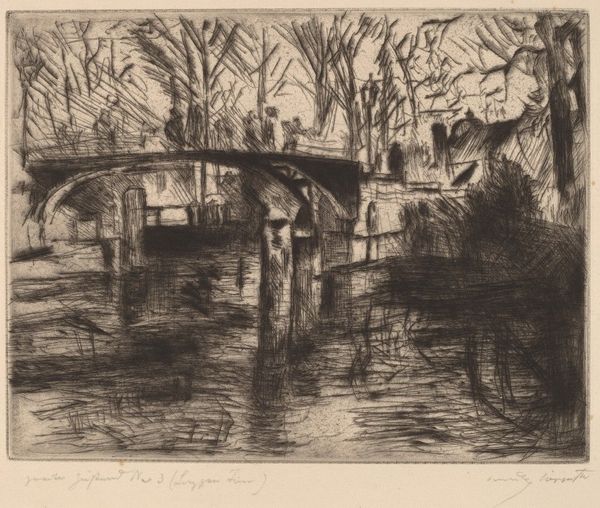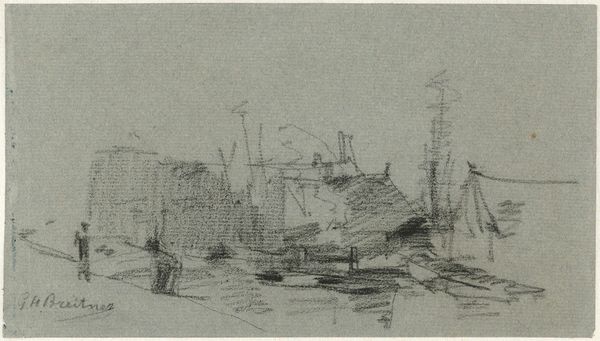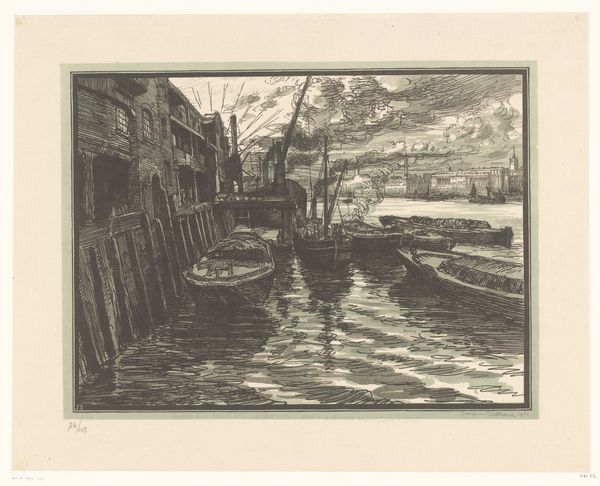
print, etching
# print
#
etching
#
landscape
#
german-expressionism
#
cityscape
Dimensions: plate: 30.4 × 40.5 cm (11 15/16 × 15 15/16 in.) sheet: 48.7 × 60.9 cm (19 3/16 × 24 in.)
Copyright: National Gallery of Art: CC0 1.0
Curator: Welcome to this intimate etching, “Hamburg, Freihafen,” crafted in 1910 by Emil Nolde. It depicts a scene from the Hamburg free port. Editor: My first impression is of a brooding stillness, despite being a port scene. The density of lines makes everything feel weighted down, almost oppressive. Curator: That somber mood aligns with the growing urban unease prevalent at the time. Nolde, as a key figure in German Expressionism, often channeled intense emotional experiences through his work. Ports like Hamburg were powerful symbols of trade, but also rife with labor exploitation and class disparity. Editor: Exactly. The rough etching technique only amplifies that feeling. See how those stark, scratchy lines almost trap the boats in the water, emphasizing the inescapable grit of industrialized life? It's not just a pretty cityscape. Curator: The stark contrasts indeed create a powerful tension. He masterfully uses the etching needle to vary the tones, building the mood from shadow and light in what was an important German harbour during times of increased globalisation and international conflicts. Editor: And look at how the perspective almost flattens. There’s this uneasy spatial compression. The looming warehouses and the smoking chimney become almost menacing backdrops for these little vessels. Nolde doesn't allow for any escapism; the viewer is pulled into this dense reality. Are the ships sailing away or stuck? Curator: Interesting that you observe this dynamic quality, considering Nolde, though affiliated with groups like Die Brücke for a time, operated somewhat independently within Expressionism. “Hamburg, Freihafen,” encapsulates how individual artists were responding to the transformations within Imperial Germany, choosing particular cities to portray, especially harbours Editor: And that's what makes it so resonant, even now. It’s a landscape pregnant with social commentary, an invitation to consider the human cost behind these grand portscapes. Curator: I concur; considering "Hamburg, Freihafen," through Nolde's personal lens allows us to rethink established historical assumptions. It's a challenging but imperative experience to consider how harbors have a significant impact on global economics. Editor: Ultimately, this print becomes an exploration of place but, perhaps more importantly, people and systems too often overlooked. It speaks volumes beyond its immediate image.
Comments
No comments
Be the first to comment and join the conversation on the ultimate creative platform.
